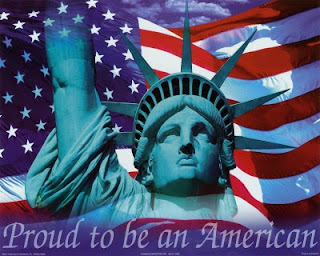
Welcome to the best course there is bar none. I will be using this blog as a means of providing you with notes, assignments, due dates, test dates and the like. In the spirit of American capitalism and consumerism, this is your one stop shopping site for everything American History AP. We will NOT be undersold!
To begin the semester, we had a few introductory classes. Below you will find a summary of what was covered.
It is often useful to discuss the history of the United States in context with the history of Canada. You will find that if we were to compare the history of the two countries, America's history is inventive while Canada's is more reactive. This follows right from our origins.

Children of A Common Mother The Peace Arch found at the Washington - British Columbia border has the phrase,"Children of a Common Mother," inscribed on it. This speaks to our shared British colonial heritage, but it also is true of
two peoples who have lived on the
two peoples who have lived on the
same continent together.

Americans chose to blaze a trail to their own country in 1776. Tens of thousands of American colonists, known as the United Empire Loyalists, saw Canada as a haven where they could remain loyal to Britain, and flooded north to do so. Their settlement created a contrarianism to anything American.

In 1867, this reactiveness was seen again in our decision to create a nation of sorts. Canadian Confederation was heavily influenced by our fear of American invasion. The end of the Civil War in 1865 signaled a new, stronger, reunited America with a large, battle hardened, technically superior army at its disposal on one hand and Manifest Destiny in the other.



With a raft of regional identities, a national identity that is at least partially still made up of simply not being American, and the power and resonance of the American experience itself, it is easy to explain why we are reactive by nature. Perhaps Pierre Trudeau's analogy is most useful in this case.
At a speech to the National Press Club in Washington, D.C., Trudeau was quoted as saying,"Living next to you is in some ways like sleeping with an elephant. No matter how friendly and even-tempered is the beast, if I can call it that, one is affected by every twitch and grunt."
Ultimately, the American Revolution is the revolution that changes the world as we know it.
- It gives us the first country where individual rights are protected constitutionally;
- created the model for the modern nation-state;
- and is the first and only nation formed on the basis of an idea (...We hold these truths to be self-evident, that all Men are created equal, that they are endowed by their Creator with certain unalienable Rights, that among these are Life, Liberty, and the pursuit of Happiness -- That to secure these rights, governments are instituted among men, deriving their just powers from the consent of the governed. That whenever any form of government becomes destructive to these ends, it is the right of the people to alter or to abolish it, and to institute new government, laying its foundation on such principles and organizing its powers in such form, as to them shall seem most likely to effect their safety and happiness...)
Out of the crucible of the Revolutionary War, we see the essence of what America stands for and the values it survived by in those critical moments:
- freedom
- assertiveness - standing up for oneself
- resoluteness


- democracy
- competition

- patriotism

These values express themselves in a variety of ways and it is through this course that we will explore these manifestations and learn about the essense of the American character.




